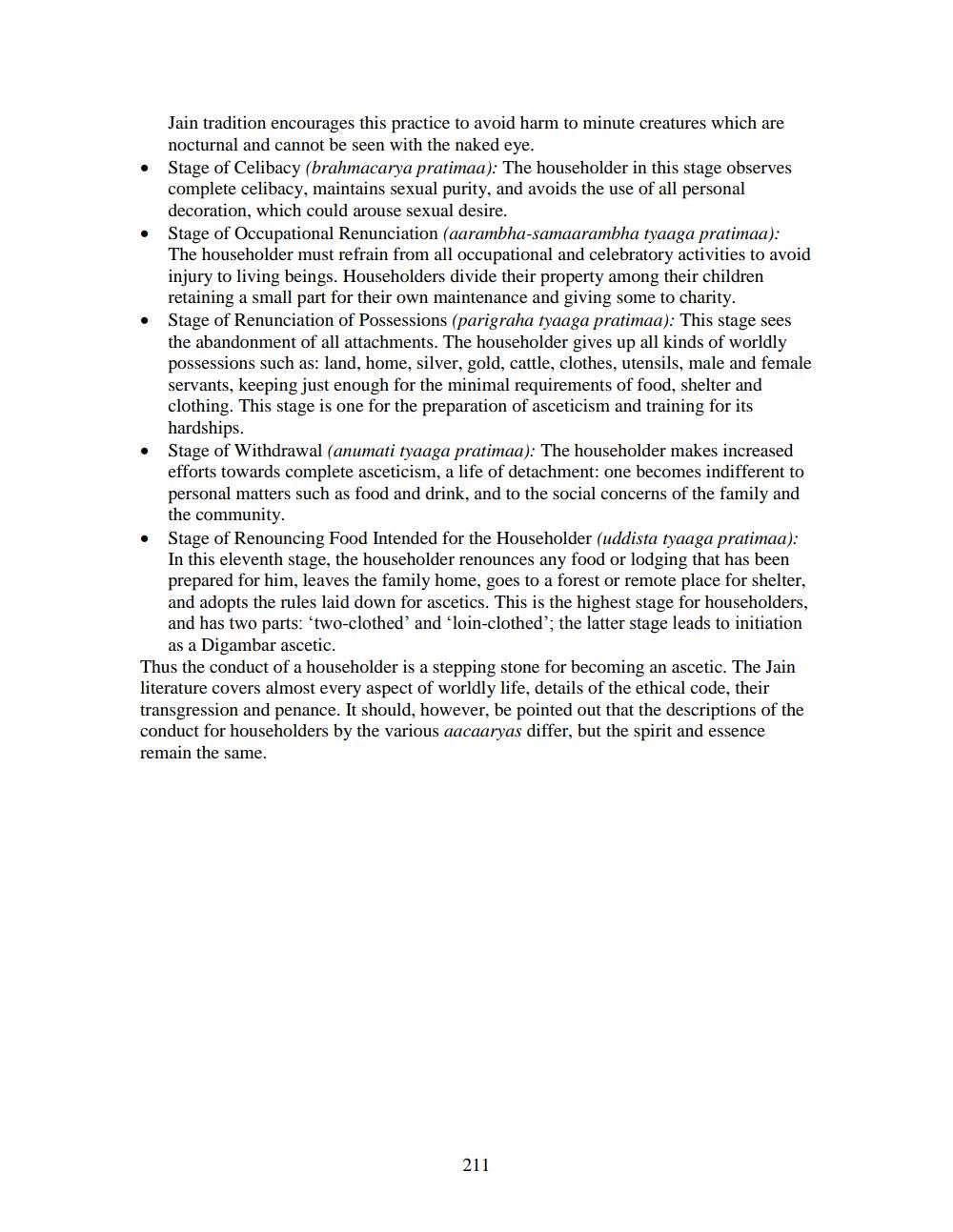________________
Jain tradition encourages this practice to avoid harm to minute creatures which are nocturnal and cannot be seen with the naked eye. Stage of Celibacy (brahmacarya pratimaa): The householder in this stage observes complete celibacy, maintains sexual purity, and avoids the use of all personal decoration, which could arouse sexual desire. Stage of Occupational Renunciation (aarambha-samaarambha tyaaga pratimaa): The householder must refrain from all occupational and celebratory activities to avoid injury to living beings. Householders divide their property among their children retaining a small part for their own maintenance and giving some to charity. Stage of Renunciation of Possessions (parigraha tyaaga pratimaa): This stage sees the abandonment of all attachments. The householder gives up all kinds of worldly possessions such as: land, home, silver, gold, cattle, clothes, utensils, male and female servants, keeping just enough for the minimal requirements of food, shelter and clothing. This stage is one for the preparation of asceticism and training for its hardships. Stage of Withdrawal (anumati tyaaga pratimaa): The householder makes increased efforts towards complete asceticism, a life of detachment: one becomes indifferent to personal matters such as food and drink, and to the social concerns of the family and the community. Stage of Renouncing Food Intended for the Householder (uddista tyaaga pratimaa): In this eleventh stage, the householder renounces any food or lodging that has been prepared for him, leaves the family home, goes to a forest or remote place for shelter, and adopts the rules laid down for ascetics. This is the highest stage for householders, and has two parts: 'two-clothed' and 'loin-clothed'; the latter stage leads to initiation
as a Digambar ascetic. Thus the conduct of a householder is a stepping stone for becoming an ascetic. The Jain literature covers almost every aspect of worldly life, details of the ethical code, their transgression and penance. It should, however, be pointed out that the descriptions of the conduct for householders by the various aacaaryas differ, but the spirit and essence remain the same.
211




